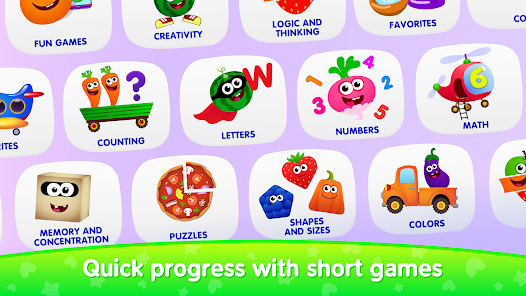Playing games is a great way for children to learn new skills and concepts! Educational games for kids 2-4 are specifically designed to engage young children in an interactive learning experience that helps them develop cognitive, social, and motor skills.
In this article, we will discuss some helpful tips and tricks that will help your child get the most out of educational games for kids 2-4.
1. Start with simple games - When introducing your child to educational games for the first time, it's important to start with simple games that are easy for them to understand. Games that have too many rules or require too much instruction can be overwhelming for young children and may cause them to lose interest quickly.
2. Focus on one skill at a time - Many educational games are designed to teach multiple skills, such as counting, colors, and shapes. However, it's important to focus on one skill at a time so that your child can fully grasp the concept before moving on to the next one.
Educational games for kids 2-4
8.2
Educational








